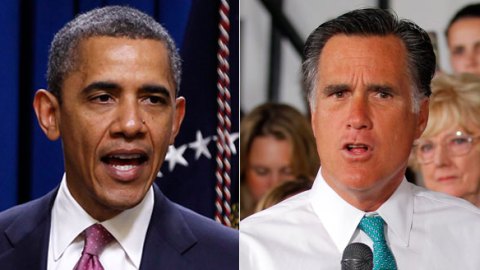Obama Might Lose (And He Might Win)

Today it’s apparently big news that many Democrats now fear that the president won’t get reelected.
I’m staying with my prediction based on common-sense political science that the election will be close. So the Democrats (and Republicans) should be full of fear, but not despair. Luckily, it’s that exact mood, the philosopher Hobbes tell us, that makes us most effective in inventing change and mobilizing power, money, and people.
2008 represented the extreme of the president’s electoral popularity. People really bought that charismatic hope and change stuff, that Obama’s excellent speechifying and campaigning would translate into highly competent, transformational governing. Obama way, way outspent McCain, and McCain’s campaign was flat, confused, and generally incompetent. Not only that, people were ticked off at the Republicans’—and especially President Bush’s—record of serial screw-ups.
2010 represented the extreme of the Republicans’ electoral popularity these days—what with the Tea Party enthusiasm and a high level of indignation directed against ObamaCare.
The Democrats are concerned—and even crying foul—because they won’t be able to outspend Romney and his allies. They’re whining that money buys elections, forgetting that it contributed big-time, at least, to their victory in 2008. The truth is that the two candidates will be pretty equal when it comes to funding. They’ll both be able to spend A LOT, just about as much as they want.
Democrats are also concerned because the damage done to Romney by the primary in-fighting has largely worn off. (It almost always does.) And they’ve figured out that Romney has much more self-discipline and (despite his lack of military service and his religious devotion) a much more animated killer instinct that McCain.
Another sign of Obama’s weakness is that about nobody is saying that he should campaign on his record of success.
The economy, Democrats admit, remains in bad shape. And people are pretty anxious about their precarious situations and the 40% or so of their personal and family wealth that’s disappeared over the last five years or so.
So, as the article says, the advice being given the president is to make real clear that our economic woes remain the Republicans’ fault.
Students of The Federalist know that one reason our Framers created a UNITARY executive is to focus responsibility on the president. Because he’s bound to be held responsible, he’s incentivized to take responsibility. He knows his chances for reelection will largely depend on answers to the searching personal question: “Are you better off than you were four years ago?”
Hoover, after all, could say with great plausibility that the Depression wasn’t his fault, and he was doing everything he could to bring it to an end. The voters in 1932 didn’t really care whether or not it was his fault. It happened on his watch, and there was little evidence anyone could feel that things were getting turned around.
It’s interesting, as I’ve said before, that the president and his supporters aren’t even trumpeting their responsibility for the beneficial changes they really believe ObamaCare will bring us.
Why does Obama even have a chance—a good chance—of getting reelected?
He remains personally somewhat popular. People still want him to do well. Romney doesn’t inspire love and so far only so much confidence, and his record of getting real, real rich at Bain is viewed with suspicion and incomprehension by most Americans. And our country, after all, is pretty evenly divided on the issues that really do divide our two parties. We can’t tell how the Mormon thing will play out yet.
I’ve said before that we’re lucky to have two decent guys with wonderful families running. They both speak well and are very smart.
But at this point: Most Americans aren’t thrilled with having either of them as president. That might be the main reason the outcome of the election is so difficult to handicap.
All we can say is that the polls show a tie, and that the battleground states really are battlegrounds.





